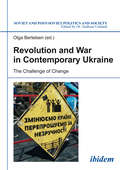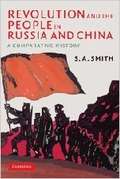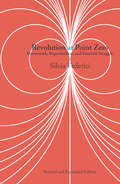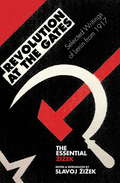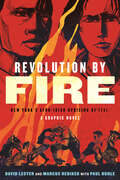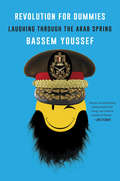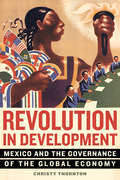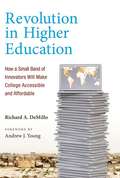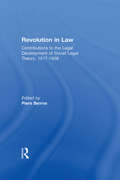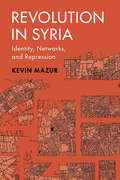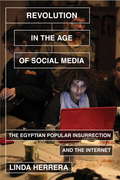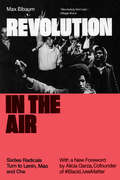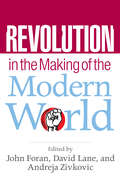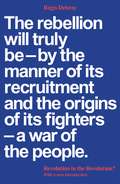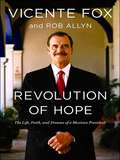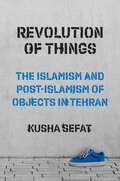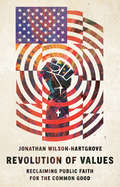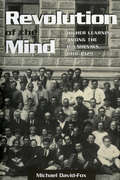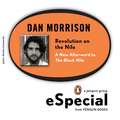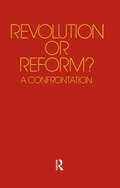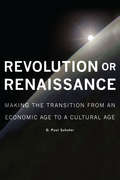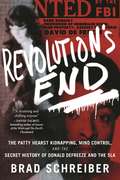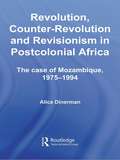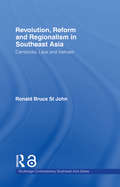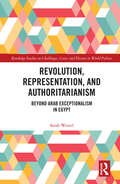- Table View
- List View
Revolution and War in Contemporary Ukraine: The Challenge of Change (Soviet and Post-Soviet Politics and Society #161)
by Olga BertelsenWhat are the reasons behind, and trajectories of, the rapid cultural changes in Ukraine since 2013? This volume highlights: the role of the Revolution of Dignity and the Russian-Ukrainian war in the formation of Ukrainian civil society; the forms of warfare waged by Moscow against Kyiv, including information and religious wars; Ukrainian and Russian identities and cultural realignment; sources of destabilization in Ukraine and beyond; memory politics and Russian foreign policies; the Kremlin's geopolitical goals in its 'near abroad'; and factors determining Ukraine's future and survival in a state of war. The studies included in this collection illuminate the growing gap between the political and social systems of Ukraine and Russia. The anthology illustrates how the Ukrainian revolution of 2013–2014, Russia's annexation of the Crimean peninsula, and its invasion of eastern Ukraine have altered the post-Cold War political landscape and, with it, regional and global power and security dynamics.
Revolution and the People in Russia and China
by S. A. SmithA unique comparative account of the roots of Communist revolution in Russia and China. Steve Smith examines the changing social identities of peasants who settled in St Petersburg from the 1880s to 1917 and in Shanghai from the 1900s to the 1940s. Russia and China, though very different societies, were both dynastic empires with backward agrarian economies that suddenly experienced the impact of capitalist modernity. This book argues that far more happened to these migrants than simply being transformed from peasants into workers. It explores the migrants' identification with their native homes; how they acquired new understandings of themselves as individuals and new gender and national identities. It asks how these identity transformations fed into the wider political, social and cultural processes that culminated in the revolutionary crises in Russia and China, and how the Communist regimes that emerged viewed these transformations in the working classes they claimed to represent.
Revolution at Point Zero: Housework, Reproduction, and Feminist Struggle (Common Notions Ser.)
by Silvia FedericiAs Federici reveals, behind the capitalist organization of work and the contradictions inherent in "alienated labor" is an explosive ground zero for revolutionary practice upon which are decided the daily realities of our collective reproduction. Beginning with Federici's organizational work in the Wages for Housework movement, the essays collected here unravel the power and politics of wide but related issues including the international restructuring of reproductive work and its effects on the sexual division of labor, the globalization of care work and sex work, the crisis of elder care, the development of affective labor, and the politics of the commons. This new and expanded edition contains two previously unpublished essays by the author.
Revolution at the Gates
by V. I. Lenin Slavoj ZizekThe idea of a Lenin renaissance might well provoke an outburst of sarcastic laughter. Marx is OK, but Lenin? Doesn't he stand for the big catastrophe which left its mark on the entire twentieth-century?Lenin, however, deserves wider consideration than this, and his writings of 1917 are testament to a formidable political figure. They reveal his ability to grasp the significance of an extraordinary moment in history. Everything is here, from Lenin-the-ingenious-revolutionary-strategist to Lenin-of-the-enacted-utopia. To use Kierkegaard's phrase, what we can glimpse in these writings is Lenin-in-becoming: not yet Lenin-the-Soviet-institution, but Lenin thrown into an open, contingent situation.In Revolution at the Gates, Slavoj i ek locates the 1917 writings in their historical context, while his afterword tackles the key question of whether Lenin can be reinvented in our era of "cultural capitalism." i ek is convinced that, whatever the discussion--the forthcoming crisis of capitalism, the possibility of a redemptive violence, the falsity of liberal tolerance--Lenin's time has come again.
Revolution by Fire: New York's Afro-Irish Uprising of 1741, a Graphic Novel
by Marcus Rediker David LesterBased on the little known real life "Slave Insurrection" of 1741, this book imagines outlaw fugitive John Gwin and an eclectic crew of renegades as they attempt to disrupt and overthrow the colonial social orderRebel fugitive John Gwin was previously introduced in Under the Banner of King Death and this graphic novel continues his adventures. Revolution by Fire is a hypothetical look at the inner workings of the so called &“New York Conspiracy&” or "Slave Rebellion" of 1741, following the figures who were considered the real-life masterminds of the plot.Featuring an eclectic crew of African-American, Irish, and mixed race Hispanic sailors, soldiers, and renegades, Gwin and his band are determined to capture New York City in their own names and fight the higher class &“wigs and ruffles&” wearing white people. Unfortunately for the conspirators, suspicions about an uprising were already in the minds of the Governor and his fellow elites, and the events that followed change the course of everyone&’s lives forever.Based on the chapter titled &“Outcasts of the Nations of the Earth&” in Rediker&’s and Peter Linebaugh&’s The Many-Headed Hydra: Sailors, Slaves, Commoners, and the Hidden History of the Revolutionary Atlantic, the book provides a fly-on-the-wall view of a historical event reimagined, highlighting cooperation among races and classes that transcends the social order of its time—and inspire us today.
Revolution for Dummies: Laughing through the Arab Spring
by Bassem Youssef“Hilarious and Heartbreaking. Comedy shouldn’t take courage, but it made an exception for Bassem.” --Jon Stewart"The Jon Stewart of the Arabic World"—the creator of The Program, the most popular television show in Egypt’s history—chronicles his transformation from heart surgeon to political satirist, and offers crucial insight into the Arab Spring, the Egyptian Revolution, and the turmoil roiling the modern Middle East, all of which inspired the documentary about his life, Tickling Giants.Bassem Youssef’s incendiary satirical news program, Al-Bernameg (The Program), chronicled the events of the 2011 Egyptian Revolution, the fall of President Hosni Mubarak, and the rise of Mubarak’s successor, Mohamed Morsi. Youssef not only captured his nation’s dissent but stamped it with his own brand of humorous political criticism, in which the Egyptian government became the prime laughing stock.So potent were Youssef’s skits, jokes, and commentary, the authoritarian government accused him of insulting the Egyptian presidency and Islam. After a six-hour long police interrogation, Youssef was released. While his case was eventually dismissed, his television show was terminated, and Youssef, fearful for his safety, fled his homeland. In Revolution for Dummies, Youssef recounts his life and offers hysterical riffs on the hypocrisy, instability, and corruption that has long animated Egyptian politics. From the attempted cover-up of the violent clashes in Tahrir Square to the government’s announcement that it had created the world’s first "AIDS cure" machine, to the conviction of officials that Youssef was a CIA operative—recruited by Jon Stewart—to bring down the country through sarcasm. There’s much more—and it’s all insanely true.Interweaving the dramatic and inspiring stories of the development of his popular television show and his rise as the most contentious funny-man in Egypt, Youssef’s humorous, fast-paced takes on dictatorship, revolution, and the unforeseeable destiny of democracy in the Modern Middle East offers much needed hope and more than a few healing laughs. A documentary about his life, Tickling Giants, debuted at the Tribeca Film Festival in 2016, and is now scheduled for major release.
Revolution in Development: Mexico and the Governance of the Global Economy
by Christy ThorntonRevolution in Development uncovers the surprising influence of postrevolutionary Mexico on the twentieth century's most important international economic institutions. Drawing on extensive archival research in Mexico, the United States, and Great Britain, Christy Thornton meticulously traces how Mexican officials repeatedly rallied Third World leaders to campaign for representation in global organizations and redistribution through multilateral institutions. By decentering the United States and Europe in the history of global economic governance, Revolution in Development shows how Mexican economists, diplomats, and politicians fought for more than five decades to reform the rules and institutions of the global capitalist economy. In so doing, the book demonstrates, Mexican officials shaped not only their own domestic economic prospects but also the contours of the project of international development itself.
Revolution in Higher Education
by Richard A. DemilloColleges and universities have become increasingly costly, and, except for a handful of highly selective, elite institutions, unresponsive to twenty-first-century needs. But for the past few years, technology-fueled innovation has begun to transform higher education, introducing new ways to disseminate knowledge and better ways to learn -- all at lower cost. In this impassioned account, Richard DeMillo tells the behind-the-scenes story of these pioneering efforts and offers a roadmap for transforming higher education. Building on his earlier book, Abelard to Apple, DeMillo argues that the current system of higher education is clearly unsustainable. Colleges and universities are in financial crisis. Tuition rises inexorably. Graduates of reputable schools often fail to learn basic skills, and many cannot find suitable jobs. Meanwhile, student-loan default rates have soared while the elite Ivy and near-Ivy schools seem remote and irrelevant. Where are the revolutionaries who can save higher education? DeMillo's heroes are a small band of innovators who are bringing the revolution in technology to colleges and universities. DeMillo chronicles, among other things, the invention of MOOCs (Massive Open Online Courses) by professors at Stanford and MIT; Salman Khan's Khan Academy; the use of technology by struggling historically black colleges and universities to make learning more accessible; and the latest research on learning and the brain. He describes the revolution's goals and the entrenched hierarchical system it aims to overthrow; and he reframes the nature of the contract between society and its universities. The new institutions of a transformed higher education promise to demonstrate not only that education has value but also that it has values -- virtues for the common good.
Revolution in Law: Contributions to the Legal Development of Soviet Legal Theory, 1917-38
by Piers BeirneThe essays in this volume reassess pre-revolutionary Russian legal culture, the debates of the 1920s over the role of law under socialism, and the abrupt and bloody termination of the debate which took place in the 1930s.
Revolution in Syria: Identity, Networks, and Repression (Cambridge Studies in Comparative Politics)
by Kevin MazurHow does protest advancing diverse claims turn into violent conflict occurring primarily along ethnic lines? This book examines that question in the context of Syria, drawing insight from the evolution of conflict at the local level. Kevin Mazur shows that the challenge to the Syrian regime did not erupt neatly along ethnic boundaries, and that lines of access to state-controlled resources played a critical structuring role; the ethnicization of conflict resulted from failed incumbent efforts to shore up network ties and the violence that the Asad regime used to crush dissent by challengers excluded from those networks. Mazur uses variation in the political and demographic characteristics of locales to explain regime strategies, the roles played by local intermediaries, the choice between non-violent and violent resistance, and the salience of ethnicity. By drawing attention to cross-ethnic ties, the book suggests new strategies for understanding ostensibly ethnic conflicts beyond Syria.
Revolution in the Age of Social Media
by Linda HerreraEgypt's January 25 revolution was triggered by a Facebook page and played out both in virtual spaces and the streets. Social media serves as a space of liberation, but it also functions as an arena where competing forces vie over the minds of the young as they battle over ideas as important as the nature of freedom and the place of the rising generation in the political order. This book provides piercing insights into the ongoing struggles between people and power in the digital age.
Revolution in the Air: Sixties Radicals Turn to Lenin, Mao and Che
by Max ElbaumRevolution in the Air is the definitive study of how radicals from the sixties movements embraced twentieth-century Marxism, and what movements of dissent today can learn from the legacies of Lenin, Mao and Che.
Revolution in the Making of the Modern World: Social Identities, Globalization and Modernity
by David Lane John Foran Andreja ZivkovicThis volume questions whether ideas of revolution are still relevant in the postmodern and globalized world of the twenty-first century. Featuring contributions from some of the world's leading sociological and political thinkers on revolution, it combines theoretical concerns with a variety of detailed case studies of individual revolutions. Subjects covered include: democracy and revolution from 1789 to 1989 twentieth century revolutions and theories of revolution, including Marxism, modernization and structuralist theories revolution in the "Third World" and the variable geometry of the paths to modernity Islamic revolutions and modernity the 1989 revolutions as "democratic revolutions" or "elite-led transitions" globalization, the nation-state and revolution empire and "democratic revolution" network society and revolution Islamic fundamentalism, international terrorism and revolution democratic revolution as a new form of revolution postmodern theories of revolution new social movements, identities and new figures of revolution. Revolution in the Making of the Modern World will be essential reading for students and scholars of comparative politics, political theory, revolution and political sociology.
Revolution in the Revolution?
by Regis DebrayRevolution in the Revolution? is a brilliant, pragmatic assessment of the situation in Latin America in the 1960s. First published in 1967, it became a controversial handbook for guerrilla warfare and revolution, read alongside Che’s own pamphlets, and remains fully as important as the writings of Guevara. Lucid and compelling, it spares no personage, no institution, and no concept, taking on not only Russian and Chinese strategies but Trotskyism as well.The year it was published, Debray was convicted of having been part of Guevara’s guerrilla group and sentenced to thirty years in prison. He was released in 1970, following an international campaign, which included appeals by Jean-Paul Sartre, André Malraux, General Charles de Gaulle and Pope Paul VI.
Revolution of Hope
by Vicente Fox Rob AllynThe charismatic former president of Mexico offers a candid and provocative perspective on the state of world affairs. As president of Mexico, Vicente Fox brought true democracy to the country after seven decades of one party rule. Elected as a political outsider with a message of honesty, change, and hope, he is truly a hero of democracy, and this vivid book interweaves his inspiring personal story with his hopeful new vision for the future of the Americas. President Fox candidly reveals the ups and downs of his relationships with world leaders from George W. Bush and Tony Blair to Fidel Castro, Vladimir Putin, and Hugo Chávez. He also speaks out on hot global topics such as immigration, the war in Iraq, racism, the United Nations, free trade, and the moral imperative to heal the global divide between rich and poor nations. Outspoken, impassioned, sincere, and engaging, Vicente Fox embodies a quality that seems all too rare in world politics these days-the moral character of a genuine leader.
Revolution of Things: The Islamism and Post-Islamism of Objects in Tehran (Princeton Studies in Cultural Sociology #23)
by Kusha SefatAn exploration of the ways that shifting relations between materiality and language bring about different forms of politics in TehranIn Revolution of Things, Kusha Sefat traces a dynamism between materiality and language that sheds light on how the merger of the two permeates politics. To show how shifting relations between things and terms form the grounds for different modes of action, Sefat reconstructs the political history of postrevolutionary Iran at the intersection of everyday objects and words. Just as Islamism fashioned its own objects in Tehran during the 1980s, he explains, tyrannical objects generated a distinct form of Islamism by means of their material properties; everyday things from walls to shoes to foods were active political players that helped consolidate the Islamic Republic. Moreover, President Rafsanjani’s “liberalization” in the 1990s was based not merely on state policies and post-Islamist ideologies but also on the unlikely things—including consumer products from the West—that engendered and sustained “liberalism” in Tehran.Sefat shows how provincial vocabularies transformed into Islamist and post-Islamist discourses through the circulation of international objects. The globalization of objects, he argues, was constitutive of the different forms that politics took in Tehran, with each constellation affording and foreclosing distinct modes of agency. Sefat’s intention is not to alter historical facts about the Islamic Republic but to show how we can rethink the matter of those facts. By bringing the recent “material turn” into conversation with the canons of structural analysis, poststructuralist theory, sociolinguistics, and Middle East studies, Sefat offers a unique perspective on Iran’s revolution and its aftermath.
Revolution of Values: Reclaiming Public Faith for the Common Good
by Jonathan Wilson-HartgroveThe religious Right taught America to misread the Bible.
Revolution of the Mind: Higher Learning among the Bolsheviks, 1918–1929 (Studies of the Harriman Institute)
by Michael David-FoxUsing archival materials never previously accessible to Western scholars, Michael David-Fox analyzes Bolshevik Party educational and research initiatives in higher learning after 1917. His fresh consideration of the era of the New Economic Policy and cultural politics after the Revolution explains how new communist institutions rose to parallel and rival conventional higher learning from the Academy of Sciences to the universities. Beginning with the creation of the first party school by intellectuals on the island of Capri in 1909, David-Fox argues, the Bolshevik cultural project was tightly linked to party educational institutions. He provides the first account of the early history and politics of three major institutions founded after the Revolution: Sverdlov Communist University, where the quest to transform everyday life gripped the student movement; the Institute of Red Professors, where the Bolsheviks sought to train a new communist intellectual or red specialist; and the Communist Academy, headquarters for a planned, collectivist, proletarian science.
Revolution on the Nile: A New Afterword to The Black Nile: A Penguin eSpecial
by Dan MorrisonA New Afterword to The Black Nile<P> An incisive report from the front lines of South Sudan's freedom referendum. In January 2011, weeks before Arab Spring took the world by storm, millions of Sudanese citizens enacted a democratic uprising of their own. In this addendum to his critically acclaimed book, The Black Nile, foreign correspondent Dan Morrison reports on the South Sudan secession from the ground, offering an unflinching portrait of the ideals, interests, and individual lives wrapped up in the struggle for freedom after decades of dictatorial rule.
Revolution or Reform?: A Confrontation
by Herbert Marcuse Thomas MolnarThis series provides a forum for the critical review of enduring issues concerning ethics and society. The text of the debate between Herbert Marcuse and Sir Karl Popper which follows in this volume raises many important issues. The crucial issues between the two participants are (1) their anthropological-axiological positions with respect to the “nature” of man, society, and the practical functions of democracy as a mode of self-government; (2) the conceptions of science and of philosophy which lie behind each thinker’s claims with respect to these; and (3) their respective conceptions of the means required and feasible for attaining their respective social goals. The remarks which follow will attempt to focus upon, and deal critically with, the problems implicit in these three areas.
Revolution or Renaissance: Making the Transition from an Economic Age to a Cultural Age (Governance Series)
by D. Paul SchaferIn Revolution or Renaissance, D. Paul Schafer subjects two of the most powerful forces in the world – economics and culture – to a detailed and historically sensitive analysis. He argues that the economic age has produced a great deal of wealth and unleashed tremendous productive power; however, it is not capable of coming to grips with the problems threatening human and non-human life on this planet. After tracing the evolution of the economic age from the publication of Adam Smith's The Wealth of Nations in 1776 to the present, he turns his attention to culture, examining it both as a concept and as a reality. What emerges is a portrait of the world system of the future where culture is the central focus of development. According to Schafer, making the transition from an economic age to a cultural age is imperative if global harmony, environmental sustainability, economic viability, and human well-being are to be achieved.
Revolution's End: The Patty Hearst Kidnapping, Mind Control, and the Secret History of Donald DeFreeze and the SLA
by Brad SchreiberForty years after the Patty Hearst "trial of the century," people still don't know the true story of the events.Revolution's End fully explains the most famous kidnapping in US history, detailing Patty Hearst's relationship with Donald DeFreeze, known as Cinque, head of the Symbionese Liberation Army. Not only did the heiress have a sexual relationship with DeFreeze while he was imprisoned; she didn't know he was an informant and a victim of prison behavior modification.Neither Hearst nor the white radicals who followed DeFreeze realized that he was molded by a CIA officer and allowed to escape, thanks to collusion with the California Department of Corrections. DeFreeze's secret mission: infiltrate and discredit Bay Area anti-war radicals and the Black Panther Party, the nexus of seventies activism. When the murder of the first black Oakland schools superintendent failed to create an insurrection, DeFreeze was alienated from his controllers and decided to become a revolutionary, since his life was in jeopardy.Revolution's End finally elucidates the complex relationship of Hearst and DeFreeze and proves that one of the largest shootouts in US history, which killed six members of the SLA in South Central Los Angeles, ended when the LAPD set fire to the house and incinerated those six radicals on live television, nationwide, as a warning to American leftists.
Revolution, Counter-Revolution and Revisionism in Postcolonial Africa: The Case of Mozambique, 1975-1994 (Routledge Studies in Modern History #Vol. 3)
by Alice DinermanThis groundbreaking study investigates defining themes in the field of social memory studies as they bear on the politics of post-Cold-War, post-apartheid Southern Africa. Alice Dinerman offers a detailed chronicle of the Mozambican government’s attempts to revise the country's troubled postcolonial past with a view to negotiating the political challenges posed by the present. In doing so, she lays bare the path-dependence of memory practices, while tracing their divergent trajectories, shifting meanings and varied combinations within ruling discourse and performance. Central themes include: the interplay between past and present the dialectic between remembering and forgetting the dynamics between popular and official memory discourses the politics of acknowledgement. Dinerman’s original analysis is essential reading for students of modern Africa, the sociology of memory, Third World politics and post-conflict societies.
Revolution, Reform and Regionalism in Southeast Asia: Cambodia, Laos and Vietnam (Routledge Contemporary Southeast Asia Series #Vol. 8)
by Ronald Bruce St JohnBased on research carried out over the three decades, this book compares the post-war political economies of Cambodia, Laos and Vietnam in the context of their individual and collective impact on contemporary efforts at regional integration. The author highlights the different paths to reform taken by the three neighbours and the effect this has had on regional plans for economic development through the ASEAN and the Greater Mekong Subregion. Through its comparative analysis of the reforms implemented by Cambodia, Laos and Vietnam over the last thirty years, the book draws attention to parallel themes of continuity and change. The author discusses how the three states have demonstrated related characteristics whilst at the same time making different modifications in order to exploit the unique strengths of their individual cultures. Contributing to the contemporary debate over the role of democratic reform in promoting economic development, the book provides a detailed account of the political economies of three states at the heart of Southeast Asia.
Revolution, Representation, and Authoritarianism: Beyond Arab Exceptionalism in Egypt (Routledge Studies on Challenges, Crises and Dissent in World Politics)
by Sarah WesselThis book examines Egypt’s turbulent and contradictory political period (2011-2015) as key to understanding contemporary politics in the country and the developments in the Arab region after the mass protests in 2010/11, more broadly. In doing so, it breaks new ground in the study of political representation, providing analytical innovation to the study of disenchantment with politics, democracy fatigue and social cohesion. Based on five years of intense fieldwork, the author provides rare insights into local and national ideas on politics, justice and identity, and on how people situate themselves and Egypt in the regional and global context. It analyzes how the creation of an alternate, political system was discussed and negotiated among the Egyptian population, the military, the government, public figures, the media, and international actors, and yet nevertheless today, Egypt has a new political regime that is the most repressive in the countries’ modern history. Finally, it recalls the emotions and perceptions of individuals and collectives and interlinks these local perspectives to national events and developments through time. This book will be of key interest to scholars and students of democratization and authoritarianism, Middle East Studies, political representation and informality, collective action, and more broadly to cultural studies and international relations.
